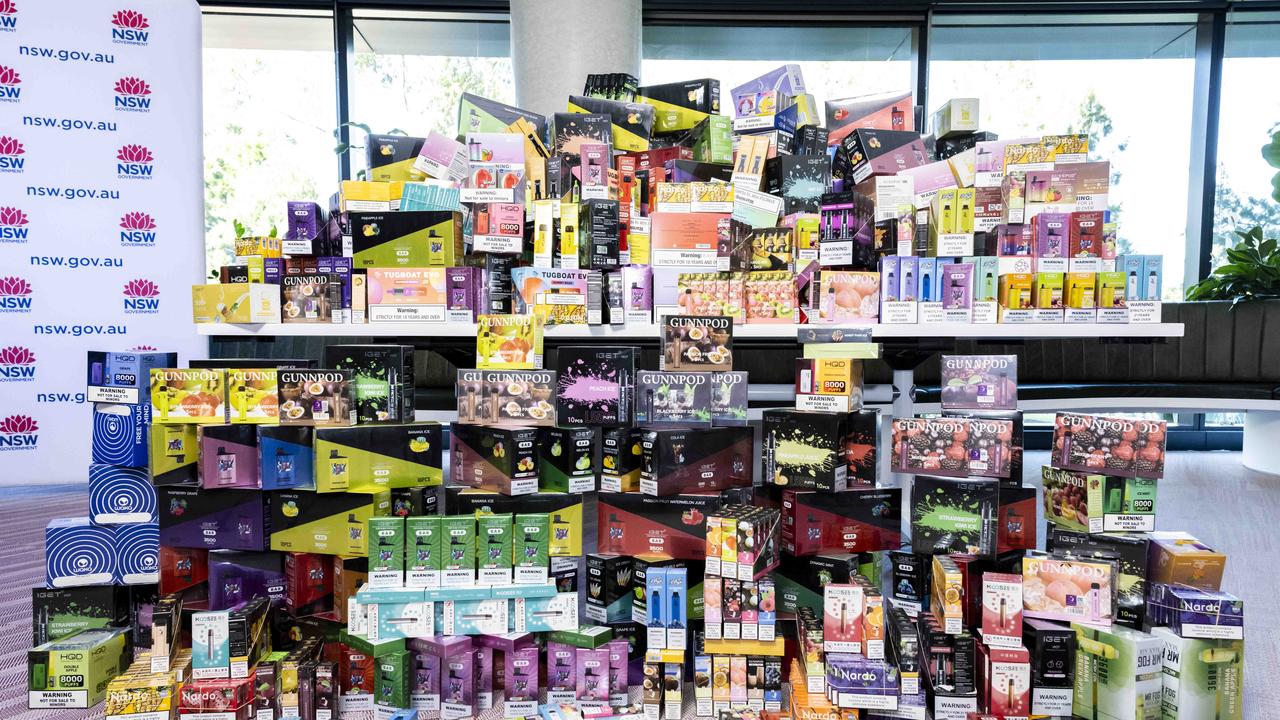
Australia's import ban on disposable e-cigarettes has led to a drastic reduction in imports from China, from over $50 million per month to just over $1 million. The ban officially commenced in January 2024, and despite previous attempts to stem the imports, it was nothing compared to the current enforcement.
According to Chinese data on exports of e-cigarettes to Australia, the restrictive measures have had a considerable impact. The e-cigarette export value to Australia fell dramatically to about $3 million since January 2024, and over the next two months, it continued to decrease, reaching only $1 million by March 2024. The current figure contrasts with pre-ban export levels from China, which consistently exceeded tens of millions of dollars. A month before the ban was imposed, exports even soared to $53.23 million.

How did Australia succeed in this implementation? Additionally, what is the current status of e-cigarette shipments in the country?
Regulatory Authorities Working Together to Crack Down on E-Cigarette Imports
Since the implementation of the disposable e-cigarette import ban in January 2024, the Australian Border Force (ABF) has not only increased border regulation but also adopted proactive strategies to fundamentally address the issue of illegal e-cigarette imports.
On May 6, ABF Deputy Commissioner Fitzgerald led a delegation to visit the China National Tobacco Corporation, followed by strategic talks with local partner agencies in Korea on May 14. During these talks, ABF Commissioner Michael Outram and representatives from the Korea Customs Service (KCS) and the Korea Coast Guard (KCG) discussed how to jointly combat illegal imports of e-cigarettes and drugs, enhance information sharing, and advance border security modernization.
Given that China is the world's largest e-cigarette exporter and Korea serves as a key transshipment point for some e-cigarettes, these actions by the ABF are clearly aimed at strengthening control over e-cigarette imports at the source, effectively enforcing Australia's import ban.
In addition to international efforts, Australia has also intensified its crackdown on smuggling within the country. On April 23, Australian police achieved a major enforcement success in the western Melbourne area, seizing e-cigarette products worth up to AUD 15 million, totaling 500,000 units. This was the largest e-cigarette seizure case in the country.
Photos released by the police showed the seized e-cigarette products bearing the logos of several well-known brands such as IGET, HQD, and GUNNPOD, which were previously popular in the Australian market.

Logistics Risks Increase, with Shipping Costs Rising to 300 yuan/kg
According to an insider in the e-cigarette logistics industry, strict controls on e-cigarette imports in Australia have left many manufacturers struggling to export their goods.
Despite export hurdles, market demand remains strong. A quick Google search reveals that many online e-cigarette stores in Australia are still operational.
This has led to a sharp increase in shipping costs for e-cigarettes to Australia. Currently, the shipping cost from China to Australia has soared from the original 40 yuan/kg to 300 yuan/kg, nearly a tenfold increase.
The insider further disclosed that, in fact, the actual transportation cost to Australia has not increased significantly, with the basic cost remaining at around 40 yuan/kg. However, given the well-known high risks of shipping to Australia—once goods are detained by customs, the losses will be severe—shipping costs have subsequently surged.
Clearly, the increase in shipping costs is not solely due to the rise in transportation costs, but rather driven by the market's assessment of risks and expectations of potential losses.
2FIRSTS will continue to monitor the e-cigarette market situation in Australia.
We welcome news tips, article submissions, interview requests, or comments on this piece.
Please contact us at info@2firsts.com, or reach out to Alan Zhao, CEO of 2Firsts, on LinkedIn
Notice
1. This article is intended solely for professional research purposes related to industry, technology, and policy. Any references to brands or products are made purely for objective description and do not constitute any form of endorsement, recommendation, or promotion by 2Firsts.
2. The use of nicotine-containing products — including, but not limited to, cigarettes, e-cigarettes, nicotine pouchand heated tobacco products — carries significant health risks. Users are responsible for complying with all applicable laws and regulations in their respective jurisdictions.
3. This article is not intended to serve as the basis for any investment decisions or financial advice. 2Firsts assumes no direct or indirect liability for any inaccuracies or errors in the content.
4. Access to this article is strictly prohibited for individuals below the legal age in their jurisdiction.
Copyright
This article is either an original work created by 2Firsts or a reproduction from third-party sources with proper attribution. All copyrights and usage rights belong to 2Firsts or the original content provider. Unauthorized reproduction, distribution, or any other form of unauthorized use by any individual or organization is strictly prohibited. Violators will be held legally accountable.
For copyright-related inquiries, please contact: info@2firsts.com
AI Assistance Disclaimer
This article may have been enhanced using AI tools to improve translation and editorial efficiency. However, due to technical limitations, inaccuracies may occur. Readers are encouraged to refer to the cited sources for the most accurate information.
We welcome any corrections or feedback. Please contact us at: info@2firsts.com







